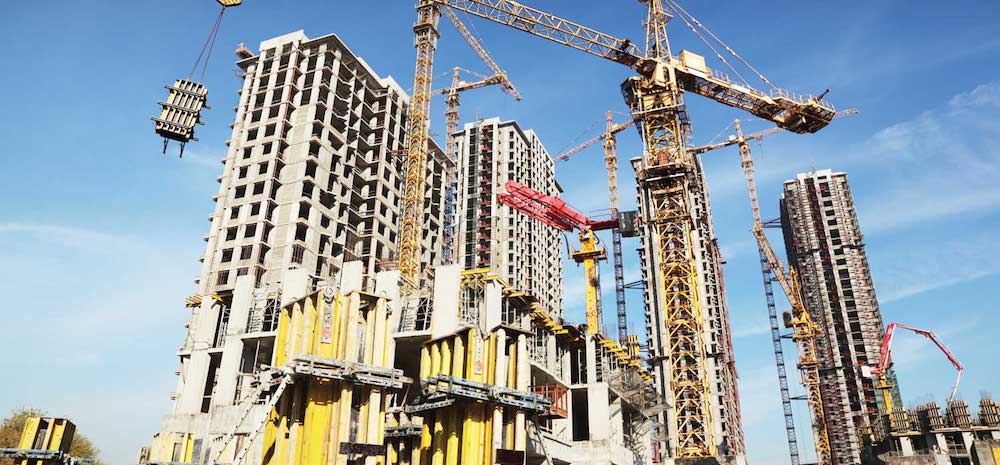Govt Opens Up Real Estate Sector For 100% FDI; What Can Realty Companies Expect?
This move will also unlock parcels of land which are not being developed due to unavailability of well-capitalised partners.

The year 2018 has started with a big-bang decision by the government allowing 100 percent FDI (foreign direct investment) in the construction development sector via the automatic routes. That means foreign funding channels won’t be required to take government’s approval to invest in India’s real estate sector encompassing townships, commercial and housing projects, built-up infrastructure and real estate broking services.
It is indeed a welcome move for the sector wherein a number of realty companies are facing tough times due to financial crunch. It is a timely decision in many ways. A considerable number of real estate projects in India are stuck, and developers are more than keen to explore ways to revive them. These projects are naturally offering better valuations to joint venture partners and investors, and the opening up of FDI via automatic route will undoubtedly help revive these projects.
This move will also unlock parcels of land which are not being developed due to unavailability of well-capitalised partners who specialise in construction, marketing and sales.
The FDI inflows in the real estate sector were recorded at US$24.54 in June 2017, accounting for a total of 8.4 percent of the total FDI inflows in the country so far.
Unavailability of organised channels of finance has always been a concern for the real estate sector. Banks and financial institutions tend to put real estate projects in high-risk weight category and developers have no choice but to resort to other means of raising finance, which cost higher than the standard interest rates.
The flow of capital through FDI route would thus provide a fresh lease of life to the sector. Needless to mention that it will create more employment opportunities for countless people.
Looking For Long-Term Growth
In the past couple of years, the global image of our country has improved by several folds, all due to the series of ground-breaking reforms planned and executed with immense willpower and courage by the government.
In the World Bank’s report “Doing Business 2018: Reforming to Create Jobs”, India was the only country from the South Asia region included in the list of ‘Top 10 Improvers”. Plus, India jumped 30 ranks up from 130 to 100, thus entering the ‘top 100’ club of the top performing economies in the world. This is a major feat considering the size of our economy.
The tough decisions taken on the regulatory front have sent a clear message in the global community that we are looking for long-term growth and development, and are ready to take on challenges that may arise out of short-term disruption. Nearly all the major economies in the world are watching us closely, and the global investor community is more open and more confident about the prospects of our country.
There is no second thought about the sheer potential our vibrant demographics hold. We are the second largest market in the world after China, and every country wants to be a part of our growth story. The bottlenecks related to ease of doing business and red tape are getting addressed, and the overall scenario is improving.
Unprecedented Focus on Real Estate
Talking specifically about the real estate sector, it is actually under unprecedented focus by the government, and there has been a chain of major decisions one after another in the past 2 years.
In the mid of 2016, the Benami Properties Transactions (Prohibition) Amendment Act was amended enacting major provisions empowering the Income Tax officials to confiscate properties for which the ownership could not be claimed or established. After that in November 2016, demonetization cracked down on cash transactions, and real estate sector took a major hit. After a few months, the long-awaited Real Estate Regulatory Act (RERA) came into effect in May 2017. Side-by-side, the government implemented the Goods and Service Tax (GST) regime on the overall front.
Prima facie, it appears to disturb businesses, and of course, steps of such a huge magnitude are bound to cause discomfort, and they did. However, looking at the larger picture, it is all going to work in favour of both property buyers and sellers alike.
The massive ‘Housing for all by 2022’ mission aims to construct 2 crore homes, and it involves public and private sector participation. There have been incentives and subsidies for both private sector developers and first-time buyers under the plan.
The FDI boost will not only ease out financial channels available for real estate development but will also bring in technology and skills from the other countries.
Things are changing fast for the real estate sector, and I can see the light at the end of the tunnel.
Sample this: The Private Equity (PE) and debt investments in the real estate sector have grown by 12 percent in 2017 to US$4.18 billion from US$3.73 billion in 2016. I believe this is just an indication of the kind of capital inflow the real estate sector in India is slated to receive in this year. Undoubtedly the short-term pain will result in long-term gain!
About The Author: This article is contributed by Girish Bindal – Head Of Content at Proptiger.
